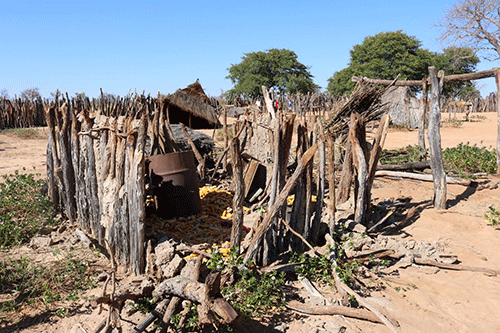The environment and tourism ministry has expressed dismay and disappointment with utterances made by the ombudsman’s office, which claimed the ministry is failing to strike a balance in dealing with cases of human-wildlife conflict.
This follows ombudsman Basilius Dyakugha’s recent comments that some human-wildlife conflict can undoubtedly be solved or mitigated.
He argued that the ministry seems to only concentrate on theory conservation, rather than implementing concrete measures to mitigate the situation.
“For example, when last did the MET issue a concession to reduce the population of crocodiles in the rivers? Why can’t they fence off the areas in the Kavango River, where people fetch water, to shield them from crocodile attacks?” he questioned.
Contrary to the claims made by the ombudsman, the ministry’s spokesperson Romeo Muyunda said they value the fundamental rights of all Namibians.
“Insinuating that the ministry is concentrating on paper or theory conservation is a strong indication that the Office of the Ombudsman is not in touch with the realities on the ground. A total of 86 conservancies and two community associations have been established to manage sustainable utilisation and benefits for rural communities from natural resources,” he reacted.
Muyunda said it is shocking that the ombudsman is proposing the building of man-made lakes in a national park, diverting some of the animals (crocodiles) from the river.
“Without getting into the details of the negative implications of such an action on the environment, we want to remind the ombudsman of his duties and functions in terms of Section 3 (1) (c) of the Ombudsman Act, 1990 (Act 7 of 1990). Namibia, through the ministry, is committed to national and international obligations through treaties and conventions. The country has signed the treaty for the Kavango Zambezi Tranfrontier Conservation areas (KAZA TFCA) and memorandum of agreements for the Okavango Permanent Commission (OKACOM) and Zambezi Watercourse Commission (ZAMCOM) for the protection and management of shared resources.”
Dyakugha also raised the issue of access and benefits from wildlife resources in the parks, which he said seems to be misplaced.
According to him, it appears that from the ministry’s point of view, it is tourism first, which he feels is wrong, because tourism includes local people and their cultures, and the income from these resources should actually provide more benefits to locals.
Muyunda said the implementation of innovative conservation strategies has led to an increase in wildlife numbers in national parks and communal areas.
“This has come with tangible benefits to those communities living with wildlife in terms of employment creation, income-generation and infrastructure development, amongst others. Inevitably, living with wildlife, unfortunately, carries a cost. As the ministry, we have noted an increase in human-wildlife conflicts,” he stated.
The 2018 revised national policy on human-wildlife conflict management provides for ways in which human-wildlife conflict should be addressed and managed, and advises on strategies and mitigation measures to be put in place to reduce conflicts.
Dyakugha also accused the ministry of not taking the interests of the whole community seriously, saying for so many years, the ministry has been selective and to a large extent has been avoiding or refusing to have a meaningful dialogue with the whole community in the Bwabwata area regarding the ministry’s plan or demarcation of that game park.
The ombudsman furthermore suggested that the ministry should have come up with plans to build large man-made lakes in the park to divert some of the animals from the river, away from the community.
This, he said, is because the human population has increased for the last 30 years, and the competition to share natural resources with animals is becoming a big challenge in that area.
Muyunda said solutions and initiatives such as the construction of livestock-proof kraals; mobile kraals; crocodile enclosures or fences; early warning systems; rapid response units; herding of livestock; livestock guardian dogs; and the provision of alternative water for people and animals away from rivers has been implemented countrywide.
Other measures include elephant-proof walls around water installations; trenches around water installations; wire with tins around crop fields; chili pepper fences; chili bombs; and electric fencing.



